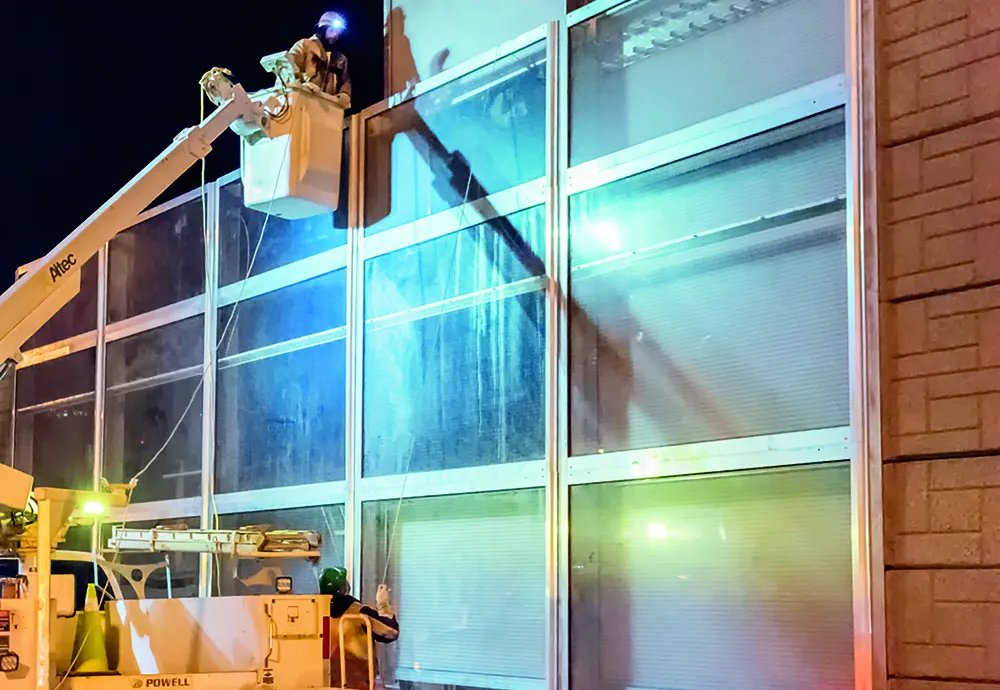The state environmental policymakers attending the Spring Meeting of the US Environmental Council of States (ECOS) have heard how states can achieve the most cost-effective and immediate air emission reductions by targeting the largest sources of oxides of nitrogen (NOx) emissions and replacing or upgrading those with the newest generation of clean diesel technology.
Allen Schaeffer, executive director of the Diesel Technology Forum, highlighted the environmental benefits of new diesel technology dur
April 7, 2017
Read time: 3 mins
The state environmental policymakers attending the Spring Meeting of the US Environmental Council of States (ECOS) have heard how states can achieve the most cost-effective and immediate air emission reductions by targeting the largest sources of oxides of nitrogen (NOx) emissions and replacing or upgrading those with the newest generation of clean diesel technology.
Allen Schaeffer, executive director of the Diesel Technology Forum, highlighted the environmental benefits of new diesel technology during a panel discussion focusing on the best investments for states with the US$2.9 billion Volkswagen Environmental Mitigation Trust. ECOS is an organisation representing the nation’s top appointed environmental officials from all 50 states and the District of Columbia.
Schaeffer said each state has both a unique opportunity and a firm obligation to ensure that the VW Environmental Mitigation Trust funds are effectively utilised for the purpose of reducing NOx emissions. He also stressed during this time of change in state and federal environmental regulatory and funding relationships that the trust fund be invested in its stated purpose - to mitigate NOx emissions that occurred from the VW vehicles that were exceeding EPA emissions standards - and not be spent for other purposes. Schaeffer said that while there may be other benefits that accrue from the investment of these funds, those are secondary to the trust’s goal of reducing NOx emissions.
He noted that in California, state air regulators have said the fastest reductions in NOx emissions in 2035 in their state won’t come from power plants or even electrification of passenger vehicles, but rather from the turnover of old-to-new commercial trucks powered with the latest clean diesel engines.
Schaeffer also noted that the US Department of Transportation and the US Environmental Protection Agency (EPA) found that one ton of NOx emissions may be eliminated by investing, on average, US$20,000 in clean diesel technology versus, on average, US$1 million in electric infrastructure.
The VW settlement includes a US$2.9 billion Environmental Mitigation Trust to “fully mitigate the total, lifetime excess NOx emissions” generated by the 550,000 light-duty VW diesel vehicles found to have been outfitted with the means to skirt emissions standards established by the EPA and the California Air Resources Board (CARB).
In most states, the largest sources of NOx emissions are older heavy-duty vehicles and large equipment, including trucks, buses, construction equipment, locomotives and marine workboats, so targeting these sources in high traffic areas like ports and freight corridor states will most effectively reduce emissions and improve air quality, Schaeffer said.
Allen Schaeffer, executive director of the Diesel Technology Forum, highlighted the environmental benefits of new diesel technology during a panel discussion focusing on the best investments for states with the US$2.9 billion Volkswagen Environmental Mitigation Trust. ECOS is an organisation representing the nation’s top appointed environmental officials from all 50 states and the District of Columbia.
Schaeffer said each state has both a unique opportunity and a firm obligation to ensure that the VW Environmental Mitigation Trust funds are effectively utilised for the purpose of reducing NOx emissions. He also stressed during this time of change in state and federal environmental regulatory and funding relationships that the trust fund be invested in its stated purpose - to mitigate NOx emissions that occurred from the VW vehicles that were exceeding EPA emissions standards - and not be spent for other purposes. Schaeffer said that while there may be other benefits that accrue from the investment of these funds, those are secondary to the trust’s goal of reducing NOx emissions.
He noted that in California, state air regulators have said the fastest reductions in NOx emissions in 2035 in their state won’t come from power plants or even electrification of passenger vehicles, but rather from the turnover of old-to-new commercial trucks powered with the latest clean diesel engines.
Schaeffer also noted that the US Department of Transportation and the US Environmental Protection Agency (EPA) found that one ton of NOx emissions may be eliminated by investing, on average, US$20,000 in clean diesel technology versus, on average, US$1 million in electric infrastructure.
The VW settlement includes a US$2.9 billion Environmental Mitigation Trust to “fully mitigate the total, lifetime excess NOx emissions” generated by the 550,000 light-duty VW diesel vehicles found to have been outfitted with the means to skirt emissions standards established by the EPA and the California Air Resources Board (CARB).
In most states, the largest sources of NOx emissions are older heavy-duty vehicles and large equipment, including trucks, buses, construction equipment, locomotives and marine workboats, so targeting these sources in high traffic areas like ports and freight corridor states will most effectively reduce emissions and improve air quality, Schaeffer said.








